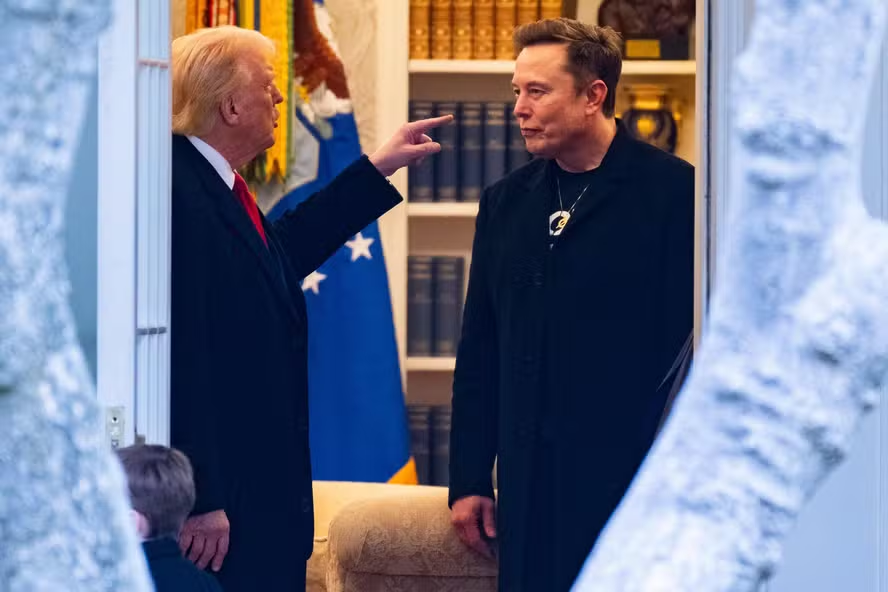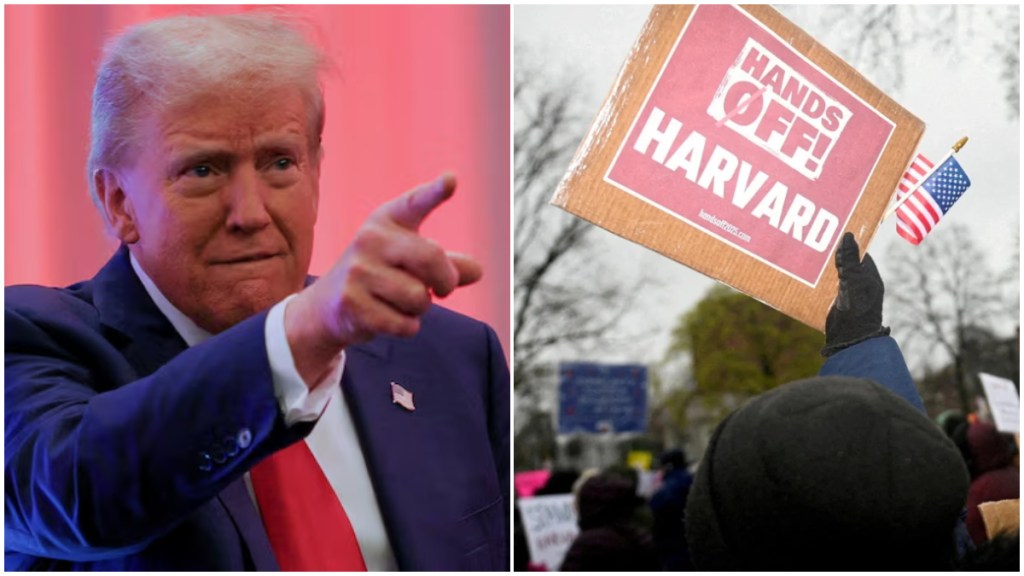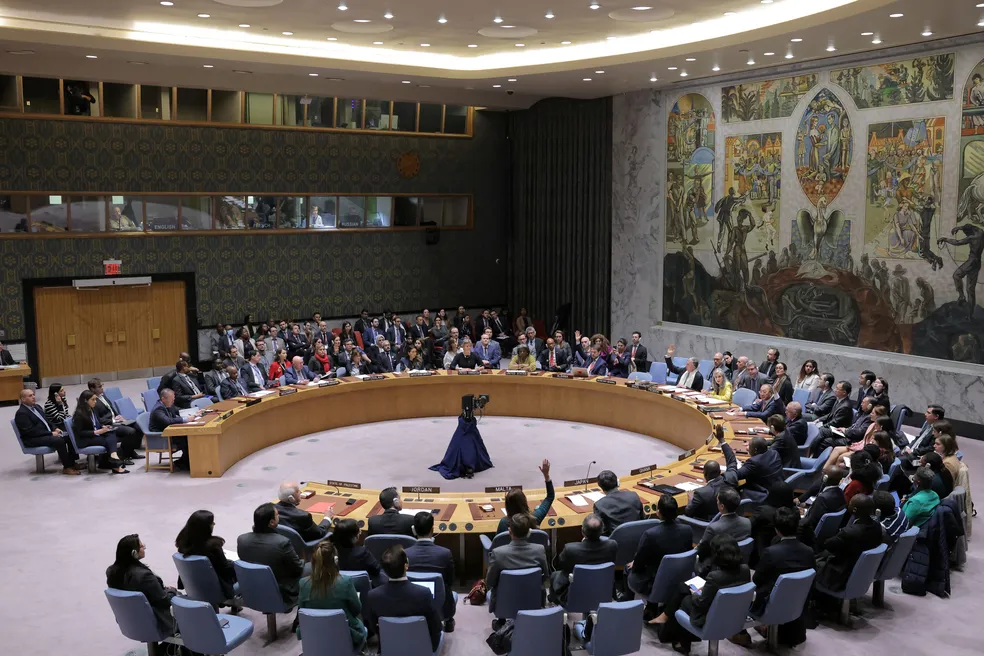President Lula’s unrestricted defence of the Maduro regime tarnishes his history as a democratic leader.
On Thursday (29), Brazilian President Lula again came out in defence of the Venezuelan regime, when asked by a journalist about the left’s reluctance to condemn Nicolás Maduro’s government. Lula, as has been the custom of his impromptu speeches, defended Maduro by stating that “democracy is relative”. Even though he stressed that he holds democracy in high esteem, since it enabled him to become president, this speech is in line with an argument being created by the president that there is a “narrative” (a term that became popular under Bolsonaro) against Maduro, to make him “look” like a dictator, when in fact he would be a democrat.
Quickly, comments in the traditional and social media were divided into two camps: those who condemned the president’s speech (either because it is, in fact, reprehensible, or because they always seek reasons to speak ill of the president in their prefabricated editorials) and those who defended him (also, because they vehemently believe that Bolivarian Venezuela is an example of democracy or because they defend anything Lula says). Like almost everything that involves politics, the case does not allow itself to be judged in such a simplistic way.
On one hand, it is possible, in a partial way, to understand the reason why Lula comes out in defence of Venezuela. In part, there is an ideological bias that can be further criticised. Within the Latin American left, there are examples of members of the left criticising the Bolivarian regime without abandoning their ideals, as is the case of Chilean president Gabriel Boric. Criticism, when constructive, does not weaken the camp. On the contrary, it aims to strengthen it. On the other hand, it is understandable that Lula, as Brazil’s president, wants to normalise Brasilia’s relationship with Caracas. Brazil is the largest economy in South America and a country that once had the leadership of the continent – and can have it again, if it relates well with its neighbours. Dealing with dictators is common in the field of international relations and, whether one likes it or not, it is part of the political pragmatism that every good leader has to demonstrate from time to time. No country wants to stop negotiating with Saudi Arabia, which orders the assassination of journalists in embassies beyond its borders, or China, where critics of the government “mysteriously” disappear, or even the USA, which every now and then plans to invade a country or change its regime, just because the person in government goes against its interests.
However, pragmatism is one thing. It is quite another to blindly defend situations that violate basic principles, whether personal or national. “Narrative”, in its most current sense, has become a word that implies that everything is relative and dependent on a point of view. It seems to be part of this “post-truth” world, in which, on the one hand, truth becomes harder to find due to the technological advance of Artificial Intelligences, but which also sees a growing number of people coming out in defence of clear untruths, like the doubt about the shape of the planet, the use of malaria drugs to cure viruses or the influence of planets on someone’s daily bad mood.
If one recognises “post-truth” as an evil afflicting societies and tries to fight it, one must say clearly, loud and clear, that the Earth is round, that chloroquine does not work for covid and that someone’s bad mood can be for almost any other reason than Jupiter being on the horizon or not. More so, it involves not disguising dictatorships as democracies just to paint your political camp as nice and impervious to mistakes. In that endeavour, let us look at some parameters on democracy and then evaluate some more recent data on Venezuela.
Even without having a complete list of the books Lula read during his unjust imprisonment, he may have come across some books on politics where he found different descriptions of “democracy”. On that particular point, he is not wrong. “Democracy” is indeed relative. One uses the term in politics, in academia and in everyday life in different ways, often meaning quite different and even opposite things. There is a very long way back to Ancient Greece, where the term “demokratía” (demos = people / kratía = power) was coined. Democracy varies according to place and time, that much is clear. However, both then and now, there are minimum parameters to know what a democracy is not.
Currently, in the West at least (or “semi-West“, for countries like Brazil that are not seen as West, however close culturally and politically), the principle of the so-called “liberal democracy” reigns, where the will of the majority is followed, but accompanied by the defence of broad political, social and economic freedoms and rights, especially for minorities. The aim is to avoid the “tyranny of the majority“, which is not identified as democracy but rather a distorted form of this regime. No country in the world, not even those usually found at the top of democracy indexes, fulfils all the requirements for being a perfect democracy. This does not mean, however, that they are on an equal footing with those that do not respect any of these requirements.
Starting from the modern academic literature, it is possible to use two well popularised and widely accepted interpretations to analyse regimes and try to find out if they are democracies. On the one hand, there is the minimalist model proposed by the Austrian economist Joseph Schumpeter. In his description, democracy is nothing more than a procedure, that is, a way in which the people of a country elect a government or a body of representatives who will elect a government. Other requirements are that the electoral competition must indeed be competitive and free, for if it is not, it cannot be considered a democracy.
A more complex model than the Schumpeterian is the one proposed by the political scientist Robert Dahl. In his book “Polyarchy” – a term used by Dahl because he believes that no large regime in the real world would actually be a democracy – the author focuses on the responsiveness of the government to its citizens. Among the various criteria established by Dahl to consider a regime a “polyarchy”, it is worth mentioning: 1) freedom of expression; 2) right to vote; 4) alternative sources of information (free press); 5) free and proper elections; 6) rights of political leaders to compete for support; 7) institutions to make government policies dependent on elections or other expressions of preference. Dahl, then, sees democracy not as a procedure but as a way of life, whereby people express themselves, inform themselves and elect their governments, which should be responsive to them, in a free manner.
There are several other definitions of democracy that are either adapted from these two or are constituted in a very different way. However, one can conclude that these two encompass minimum characteristics that can be used to assess whether a regime is minimally democratic. Let us move then to the analysis of the Venezuelan regime.
Chávez came to power in Venezuela, through elections considered free and fair, in 1999. His first mandate included a constitutional reform that was approved by 88% of the valid votes – at the time, only 37.65% of the electorate had voted. The new constitution was approved still in 1999 by a referendum that, again, had a high abstention, above 50%. The new constitutional text required a new election and so, in 2000, Chávez ran against a former colleague – who had accompanied him in the failed coup attempt that he planned in 1992. This time, with a turnout of nearly 60%, Chávez was re-elected with 59% of the valid votes.
With parts of the population accusing Chávez of “Cubanising” the country after tightening his ties with Fidel Castro, his approval rating fell to around 30%, which earned him a coup attempt in 2002 by the military. After 47 hours out of the presidency, Chávez returned thanks to popular mobilisation and military personnel who remained loyal to the government. However, protests and a general strike began in the country the same year. The demand for a “revocatory referendum” (provided for in the constitution) which, if approved, would cause Chávez to leave power and could no longer run for office in the future, was accepted in 2003 and voted on in 2004.
Of the nearly 70% of voters, 59% voted to keep Chávez in office. In fact, the president would remain in office until 2013, when he left due to his death. His then vice-president, Nicolás Maduro, took office in 2013 on an interim basis and, a month later, took over effectively after winning the elections by a margin of 1.5% over the centre-right opposition.
Venezuela’s democratic problems, however, were already being felt during the Chávez years, beyond the mere allegation of “Cubanisation” of the country. In 2008, Human Rights Watch (HRW) published a report on Hugo Chávez’s first decade as president1. There it acknowledged that the new constitution provided for increased human rights guarantees and precedence of international agreements over Venezuelan domestic law. In addition, the new Supreme Court would serve with an independent court to guarantee the fundamental rights of citizens. These promises, however, remained on paper.
Especially after the attempted coup of 2002, the report says, discrimination based on political opinions became the rule, and was even endorsed by Chávez himself. After 2004, the government gained political control of the Supreme Court, which made the defence of fundamental rights dead-letters in the constitution. The media also became more controlled and the government became less and less transparent, preventing the public from accessing data.
HRW would also publish two other reports in 2014 and 2017, already under Maduro, in which extensive violations of political and human rights are described. Evidence shows that Venezuelan security forces committed violations of the right to life, carried out torture and degrading and inhuman treatment, and prevented the defence of the rights to security, freedom and due legal process2. The 2014 report describes that the “worst documented abuses were committed against people who were not even participating in protests or were already in detention and under the full control of security forces.” The 2017 report details that security forces and armed pro-government groups attacked protesters using lethal force, causing several deaths and injuries. In addition to the protests, government agents arrested people in their own homes who had nothing to do with the street protest3.
Another renowned organisation, Reporters Without Borders (RSF), describes that Maduro maintains a continued policy of “Communicational Hegemony” which makes Venezuela live in a “prolonged restrictive environment in terms of information”4. RSF reports that the government maintains a monopoly on the import of newspapers and printed materials, preventing various periodicals from being made available to the population. The non-transparent public concession policies have resulted in the closure of several online portals, newspapers, TV and radio channels.
Amnesty International (AI) in its most recent 2022 report5 details that the country’s intelligence and security forces continue to severely repress citizens who are seen as opponents of the government, carrying out arbitrary arrests, torture and other types of ill-treatment. Between 240 and 310 people are considered political prisoners in the country. “Enforced disappearances” are also reported. In addition, extrajudicial killings by the security forces remain uninvestigated. The violence comes, however, not only from the government, but from groups that take advantage of the impunity of justice in the country to threaten indigenous peoples, women and members of the LGBTQIA community.
Finally, the United Nations (UN) launched three Fact-Finding missions to investigate allegations of human rights violations in Venezuela in 2020, 2021 and 20226. The first mission acknowledged the limitations imposed on the team, particularly due to the pandemic. The reports issued in subsequent years, however, show that there is sufficient evidence to believe that the country’s justice system acted in concert in the perpetration of violations and crimes against opponents of the government by the Venezuelan state, which includes the use of torture of opponents to obtain information. In the latest report, the mission concluded that there is sufficient evidence to state that the Venezuelan government is responsible for human rights violations.
Of course, just as for those who believe in the flat shape of the Earth or the efficacy of vermifuge to cure viruses, evidence is nothing more than “narratives” to prove a “point of view”. However, those who rely on facts should not ignore the evidence pointed out for years by several reputable organisations and institutions worldwide.
Looking at the reported facts under Chavez and Maduro, one quickly realises that the Bolivarian regime does not even remotely fulfil the basic prerequisites to be considered a ‘polyarchy’ in Dahl’s model. Nor does it succeed in passing the minimalist requirement of competitive and free elections set by Schumpeter. One can relativise these terms at will, but it is not possible to conceive that a government that takes over the Supreme Court, preventing fair trials, and acts directly with armed militias to attack citizens dissatisfied with the politics of their country can be considered a regime that broadly defends political and social rights and guarantees. Furthermore, by imprisoning, torturing and disappearing opponents, it is not possible to believe that any electoral contest held under such a regime would be free, much less fair. Venezuela fails, and in a serious way, the democratic test, even if it lowers the bar a lot.
Brazil experienced something similar for 21 years at the end of the last century. In fact, dictator Ernesto Geisel, who ruled Brazil between 1974-79, even used a similar argument to the “narrative” to categorise his government as democratic. In interviews with French journalists, he stated that “all things in the world, except God, are relative. So, the democracy that is practised in Brazil cannot be the same as the one practised in the United States, France or Great Britain. And that “Brazil lives a democratic system within its relativity”7. Relativisation is interesting in several cases, necessary in many, but extremely dangerous when carried out by leaders when dealing with fundamental rights and guarantees for human life. There is no common-sense person in Brazil who sees the period of military dictatorship as a prosperous moment of democracy in the country. There is no one of good sense in Brazil who sees a similar regime as a democracy.
It is clear that several other factors influence Venezuelan politics. It is a fact that the US has embargoed Venezuela in order to “limit the sources of income” of the Maduro government8, and members of his government have had links to the attempted coup in Venezuela in 20209. Adopting a political puppet and pretending he presides over another country, as several Western countries have done with Juan Guaidó, is not anything close to reality or democratic either. Coups or lack of formal recognition are never the answer and there can never be too much criticism against this kind of foreign action – not to mention that they tend to constantly fail, if not worsen the situation.
Lula, however, in coming out in defence of the indefensible does much more than what is expected of him, which is to maintain good relations with neighbours and respect the sovereignty of others, which is in the interest of Brazil. The moment he relativises democracy, he approaches an authoritarian flirtation that Brazil after four years of fascism in the Planalto can no longer afford, with the danger of sinking into that dark hole like so many other countries around the world have begun to bury themselves in.
Let’s not be fooled, Lula is a democrat and proved himself to be one on several occasions, especially in comparison to South American “comrades” who didn’t hesitate to abandon democracy when they had the chance – as Evo Morales did. Lula served his two constitutional terms, was responsible for several economic, social and political advances in Brazil, making it more transparent and democratic – despite the cases of corruption that occurred in his governments with evidence of participation by members of it, even if there is no proof that he personally participated. His third term comes as a promise of the revitalisation of Brazilian democracy, shaken since 2014, when coup d’état became valid political thinking by parts of the country’s political right and sectors of society. Lula has not yielded to the pressure to become authoritarian in the face of electoral setbacks or judicial persecution, and there is no reason, at present, to believe he will.
However, it is bad for democracy to relativise its meaning, especially in the internal and external context in which we find ourselves in 2023. Anti-democratic forces have become popular around the world and, however much they may have lost in part in Brazil, the US and France, for example, their struggle for power is far from over. Prudence and parsimony are called for, then.
1 https://www.hrw.org/report/2008/09/18/decade-under-chavez/political-intolerance-and-lost-opportunities-advancing-human
2 https://www.hrw.org/report/2014/05/05/punished-protesting/rights-violations-venezuelas-streets-detention-centers-and
3 https://www.hrw.org/report/2017/11/29/crackdown-dissent/brutality-torture-and-political-persecution-venezuela
4 https://rsf.org/en/country/venezuela
5 https://www.amnesty.org/en/location/americas/south-america/venezuela/report-venezuela/
6 https://www.ohchr.org/en/hr-bodies/hrc/ffmv/index
7 https://www1.folha.uol.com.br/mundo/2023/06/lula-evoca-frase-de-general-da-ditadura-ao-falar-de-democracia-relativa.shtml
8 https://www.state.gov/venezuela-related-sanctions/
9 https://www.vice.com/en/article/pkpex7/maga-the-cia-and-silvercorp-the-bizarre-backstory-of-the-worlds-most-disastrous-coup


